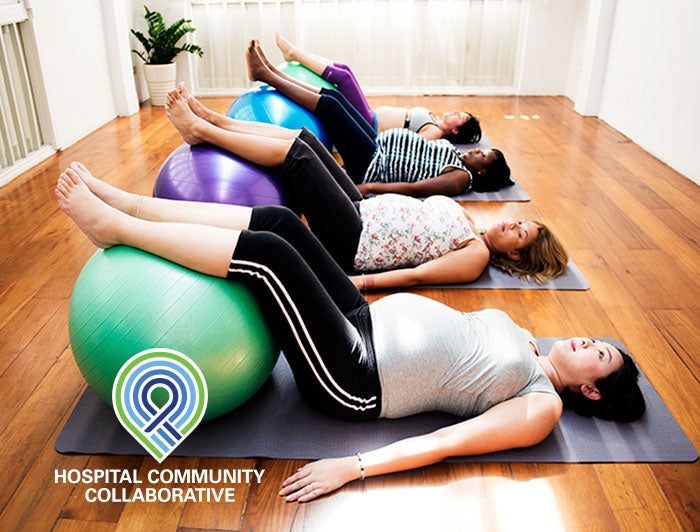Englewood Health and Community Partners Bridge Gaps to Improve Maternal and Child Health

To improve maternal and child health outcomes, Englewood (N.J.) Health worked with community partners to launch the Maternal Healthy Living Program at its Shirvan Family Live Well Center, in downtown Englewood. Started as a six-month, open-enrollment pilot program, this initiative was designed to boost healthy lifestyle behaviors for pregnant women and their babies and promote long-term healthy living practices.
The collaborative effort, which initially offered 57 free classes across three key wellness areas — physical health, emotional wellness and nutritional education — to support maternal wellness, has expanded and is now open to any woman in the perinatal period. Patients continue to remain engaged and report healthy behaviors, underscoring the program’s positive impact on maternal and child well-being.
Addressing a Critical Need for Healthier Pregnancies and Long-Term Well-Being
Englewood Health identified a critical need to educate and support pregnant women on adopting lifestyle behaviors that contribute to a healthier pregnancy and long-term well-being for themselves and their babies.
Studies on maternal health outcomes and trends show that balanced perinatal nutrition reduces the risk of gestational diabetes and preeclampsia. This created urgency for developing coordinated efforts and innovative strategies to address issues such as these. In addition, data from the health system’s community health needs assessment showed that pregnant women were in less-than-optimal health.
Bringing Together Key Collaborators
Teams at Englewood Health collaborated with the Partnership for Maternal and Child Health of Northern New Jersey, community service agencies, a local federally qualified health center, local leaders and community members to launch the Maternal Healthy Living initiative. One of the main barriers the partners faced was limited time and capacity, as each partner was already stretched thin managing their own daily operations. Taking on additional responsibilities to promote the new program and recruit participants required another level of effort that partners found challenging at first.
The partners tackled challenges of time and capacity by sharing the responsibilities and work:
- A cross-department collaboration between Englewood’s OB-GYN and population health teams launched the initiative.
- Dieticians, exercise physiologists, licensed clinical social workers, labor and delivery educators, and other internal teams designed the curriculum for the education program and also were course instructors.
- Englewood Health’s Shirvan Family Live Well Center promoted the free program, recruited people to participate and later evaluated the program.
- The Partnership for Maternal and Child Health of Northern New Jersey shared program information with community health workers, maternal health leaders in Bergen County and family representatives who serve on the organization’s advisory committee.
Lessons Learned
Partnerships are essential for recruiting community members and raising awareness of programs and resources, and marketing efforts are more effective when there’s an engaged audience. By participating in the American Hospital Association’s Hospital Community Collaborative, Englewood Health had opportunities to network and learn from others building and strengthening hospital-community partnerships. The health system’s experience with the HCC program inspired its thinking and provided a good sounding board for planning and implementing the program.
Better health outcomes don’t happen in isolation but are built through trust, collaboration and shared commitment. By identifying overlapping needs and challenges in the community and then brainstorming ways to bridge gaps together, the health system and community partners are improving health outcomes in Englewood.
